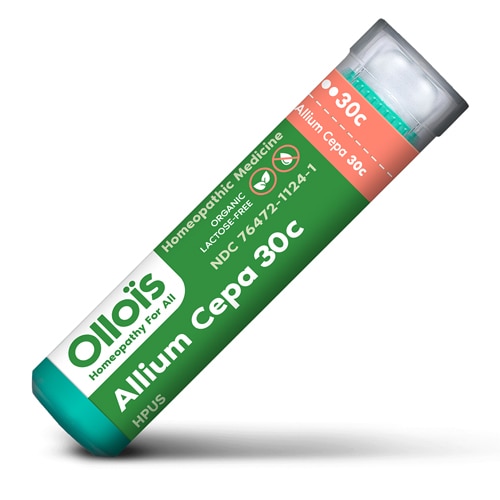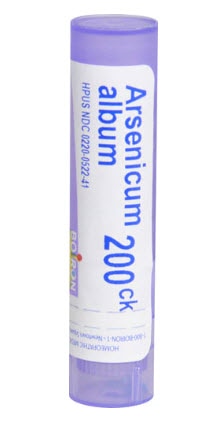Homeopathy may be new to many but its roots trace back to Ancient Greece, when Hippocrates—yes, he of the famed oath—advocated for the health system by saying, “By similar things a disease is produced and through the application of the like it is cured.”

What is homeopathy and how does it work?
Centered around the notion that that which causes an illness can also cure it, homeopathy was resurrected in the 19th century by the German physician, Christian Friedrich Samuel Hahnemann. It’s being revived with increased vigor today as more and more people across the globe are searching for additional ways to boost their immune health, particularly in the face of COVID-19.
How does homeopathy work, exactly? As Live Science put it, “Homeopathy is an alternative medical practice in which extremely dilute amounts of certain natural substances are used to treat various ailments.” The system maintains that a substance that causes adverse symptoms in a healthy person can cure the same symptoms in a sick person. Through this core principle, homeopathic remedies are used to address a wide range of conditions and symptoms, from the common cold to anxiety issues.
Using homeopathic natural remedies to boost immune system health
In terms of immune health, homeopathy encourages the body to activate its natural defense system and heal itself by stimulating its “vital force”—the energy in your body, as well as the energy that organizes matter and all of life. (Consider it the West’s version of Chinese medicine’s qi.) Prepared through a series of dilutions, typically in water or alcohol, homeopathic remedies contain only an “energetic imprint” of the original remedy.†
Sound interesting? Here are four homeopathic remedies to help you manage symptoms—and support your immune health while they’re at it.
1. Allium cepa
Commonly known as onion, Allium cepa is one of the oldest known cultivated plants. Rich in vitamins, minerals and amino acids—organic compounds that act as the “building blocks” of protein—Allium cepa is a standby in homeopathic medicine, where it’s “indicated” to offer relief from head colds, hay fever and runny noses, particularly when such symptoms are exaggerated in warm air. Derived from the bulb of an onion, it’s been described as “likely safe” by WebMD; however, 900 mg per day should not be exceeded.†
2. Oscillococcinum
You may have spotted this name on Boiron’s natural flu remedy at your favorite health food store. Created by French physician Joseph Roy during the 1920s, Oscillococcinum is obtained from the heart and liver of ducks and diluted (as in, extremely diluted) prior to use. Before that grosses you out, do know that it’s been trusted for over 65 years to help people manage the side effects of the flu (such as body aches and fatigue), with clinical studies showing that it can reduce the severity and duration of flu-like symptoms.† Others in the integrative health field believe that it can also organically encourage your body’s natural defense system. Ask for your doctor’s approval if you intend on giving it to children two years of age or younger, or if you’re pregnant or breastfeeding.
3. Gelsemium
Also known as Carolina Jasmine, Evening Trumpet Flower and woodbine, Gelsemium was the go-to root for early American settlers, who used it to treat fevers. As British Homeopathic explains, “In its homeopathic form, Gelsemium is prepared from the fresh root, which is chopped, soaked in alcohol, drained and diluted/succussed to the required potency.” It is then used to help alleviate the frequently-felt symptoms of the flu, including chills, fatigue and aching muscles. (It’s also believed to be an effective therapy for dental pain and pre-dental work anxiety.)† Unsafe for children, pregnant and lactating women, and those with heart trouble, it should only be taken under a health professional’s guidance.
4. Arsenicum album
Perhaps the most talked-about homeopathic remedy during this coronavirus era, Arsenicum album is taken from the metallic element arsenic. Sound dangerous? Rest assured that in homeopathy, scant or no arsenic exists in the solution that’s ultimately used; indeed, within the homeopathic community, Arsenicum album is thought of as one of the fifteen most important remedies. (Do note that it is neither a cure nor a preventive measure for COVID-19.) Commonly used to help with anxiety, it’s also recommended for a dry cough, gastrointestinal issues and difficulty breathing.† Do not exceed 30c—and know what all homeopathic remedies should be taken right alongside the adoption or maintenance of a wholesome, happy lifestyle.
†These statements have not been approved by the Food and Drug Administration. These products are not intended to diagnose, treat, cure or prevent disease.







